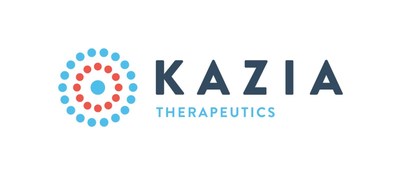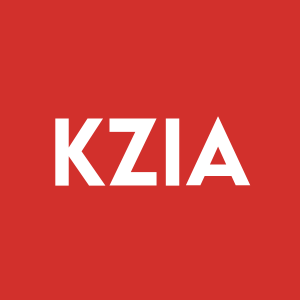US FDA AWARDS RARE PEDIATRIC DISEASE DESIGNATION (RPDD) TO PAXALISIB FOR AT/RT, A RARE FORM OF CHILDHOOD BRAIN CANCER
Rhea-AI Summary
Kazia Therapeutics Limited (NASDAQ: KZIA; ASX: KZA) announced that the FDA granted Rare Pediatric Disease Designation (RPDD) for its drug paxalisib, targeting atypical rhabdoid/teratoid tumors, a rare and aggressive childhood brain cancer. This designation may lead to a pediatric priority review voucher (pPRV), which can significantly shorten the FDA review process and has historically been valued over $100 million. The RPDD follows positive preclinical results presented at the AACR Annual Meeting in April 2022. Kazia is advancing clinical trials, including a phase II study of paxalisib.
Positive
- FDA granted Rare Pediatric Disease Designation (RPDD) to paxalisib, enhancing its development for atypical rhabdoid/teratoid tumors.
- Potential entitlement to a pediatric priority review voucher (pPRV) if paxalisib is approved, which may significantly accelerate FDA review timelines.
- Kazia is advancing multiple clinical trials involving paxalisib, indicating strong ongoing development.
Negative
- None.
News Market Reaction – KZIA
On the day this news was published, KZIA declined 1.44%, reflecting a mild negative market reaction.
Data tracked by StockTitan Argus on the day of publication.
SYDNEY, July 6, 2022 /PRNewswire/ -- Kazia Therapeutics Limited (NASDAQ: KZIA; ASX: KZA), an oncology-focused drug development company, is pleased to announce that the United States Food and Drug Administration (FDA) has awarded Rare Pediatric Disease Designation (RPDD) to Kazia's paxalisib for the treatment of atypical rhabdoid / teratoid tumors (AT/RT), a rare and highly-aggressive childhood brain cancer.
Key Points
- Rare Pediatric Disease Designation (RPDD) is granted to drugs which are under development for rare childhood diseases.
- RPDD means that the sponsor may be entitled to receive a pediatric priority review voucher (pPRV) if the drug is initially approved for that rare childhood disease. A PRV grants the holder an expedited six-month review of a new drug application. PRVs are tradeable and have historically commanded prices in excess of US
$ 100 million . - FDA's award of RPDD follows the presentation of promising preclinical data for paxalisib in AT/RT, which was presented by Professor Jeffrey Rubens and colleagues at the American Association of Cancer Research (AACR) Annual Meeting in New Orleans, LA, in April 2022.
- Paxalisib was previously granted orphan drug designation (ODD) for AT/RT by FDA on 16 June 2022.
Kazia CEO, Dr James Garner, commented, "this is the second time that paxalisib has been granted RPDD, and it demonstrates the importance of childhood brain cancer in the overall paxalisib development program. Brain cancer is the most common cause of cancer death in children, and outcomes in many forms of childhood brain cancer have not improved in decades. We very much hope that paxalisib can make a difference to families affected by both DIPG and AT/RT, and we will be working closely with clinicians, researchers, and FDA to determine the optimal way to move the drug forward."
Rare Pediatric Disease Designation
The Food and Drug Administration Safety and Innovation Act (2012) established FDA's RPDD initiative. RPDD may be granted to drugs in development for diseases which primarily affect children (under the age of 18 years), have an incidence of less than 200,000 new cases per annum in the United States, and which are serious or life-threatening.
A sponsor of a drug with RPDD may request a Rare Pediatric Disease Priority Review Voucher (PRV) at the time of a marketing application to FDA. In effect, the PRV shortens the FDA review period for a future marketing application of any drug from 12 months to 6 months. PRVs can be sold to other companies and have historically been transacted at prices in the tens to hundreds of millions of dollars. For a large company launching a billion-dollar drug, the six-month acceleration in regulatory review can be of substantial economic value. In 2019, five pediatric PRVs were granted by FDA.
Next Steps
A phase II clinical trial of multiple drug therapies, including paxalisib, is ongoing, under the sponsorship of the Pacific Pediatric Neuro-Oncology Consortium (PNOC) (NCT05009992). This study combines several investigational drugs in the treatment of patients with diffuse midline gliomas (DMGs), a category which includes DIPG. Initial data from this study is anticipated in CY2023.
A phase I study of paxalisib in DIPG, led by St Jude Children's Research Hospital in Memphis, TN (NCT03696355), is nearing completion, and final data is expected to be submitted for publication by the end of CY2022.
About Kazia Therapeutics Limited
Kazia Therapeutics Limited (NASDAQ: KZIA; ASX: KZA) is an oncology-focused drug development company, based in Sydney, Australia.
Our lead program is paxalisib, a brain-penetrant inhibitor of the PI3K / Akt / mTOR pathway, which is being developed to treat glioblastoma, the most common and most aggressive form of primary brain cancer in adults. Licensed from Genentech in late 2016, paxalisib commenced recruitment to GBM AGILE, a pivotal study in glioblastoma, in January 2021. Seven additional studies are active in various forms of brain cancer. Paxalisib was granted Orphan Drug Designation for glioblastoma by the US FDA in February 2018, and Fast Track Designation for glioblastoma by the US FDA in August 2020. In addition, paxalisib was granted Rare Pediatric Disease Designation and Orphan Designation by the US FDA for DIPG in August 2020, and for AT/RT in June 2022.
Kazia is also developing EVT801, a small-molecule inhibitor of VEGFR3, which was licensed from Evotec SE in April 2021. Preclinical data has shown EVT801 to be active against a broad range of tumour types and has provided compelling evidence of synergy with immuno-oncology agents. A phase I study commenced recruitment in November 2021.
For more information, please visit www.kaziatherapeutics.com or follow us on Twitter @KaziaTx.
Forward-Looking Statements
This announcement may contain forward-looking statements, which can generally be identified as such by the use of words such as "may," "intend," "potential," "prospective," or other similar words. Any statement describing Kazia's future plans, strategies, intentions, expectations, objectives, goals or prospects, and other statements that are not historical facts, are also forward-looking statements. Such statements are based on Kazia's expectations and projections about future events and future trends affecting our business and are subject to certain risks and uncertainties that could cause actual results to differ materially from those anticipated in the forward-looking statements, including risks and uncertainties associated with clinical trials and product development and the impact of global economic conditions. These and other risks and uncertainties, are described more fully in Kazia's Annual Report, filed on form 20-F with the SEC, and in subsequent filings to SEC. Kazia undertakes no obligation to publicly update any forward-looking statement, whether as a result of new information, future events, or otherwise, except as required under applicable law. You should not place undue reliance on these forward-looking statements, which apply only as of the date of this announcement. Actual results could differ materially from those discussed in this announcement.
This document was authorized for release to the ASX by James Garner, Chief Executive Officer, Managing Director.
![]() View original content to download multimedia:https://www.prnewswire.com/news-releases/us-fda-awards-rare-pediatric-disease-designation-rpdd-to-paxalisib-for-atrt-a-rare-form-of-childhood-brain-cancer-301581006.html
View original content to download multimedia:https://www.prnewswire.com/news-releases/us-fda-awards-rare-pediatric-disease-designation-rpdd-to-paxalisib-for-atrt-a-rare-form-of-childhood-brain-cancer-301581006.html
SOURCE Kazia Therapeutics Limited








